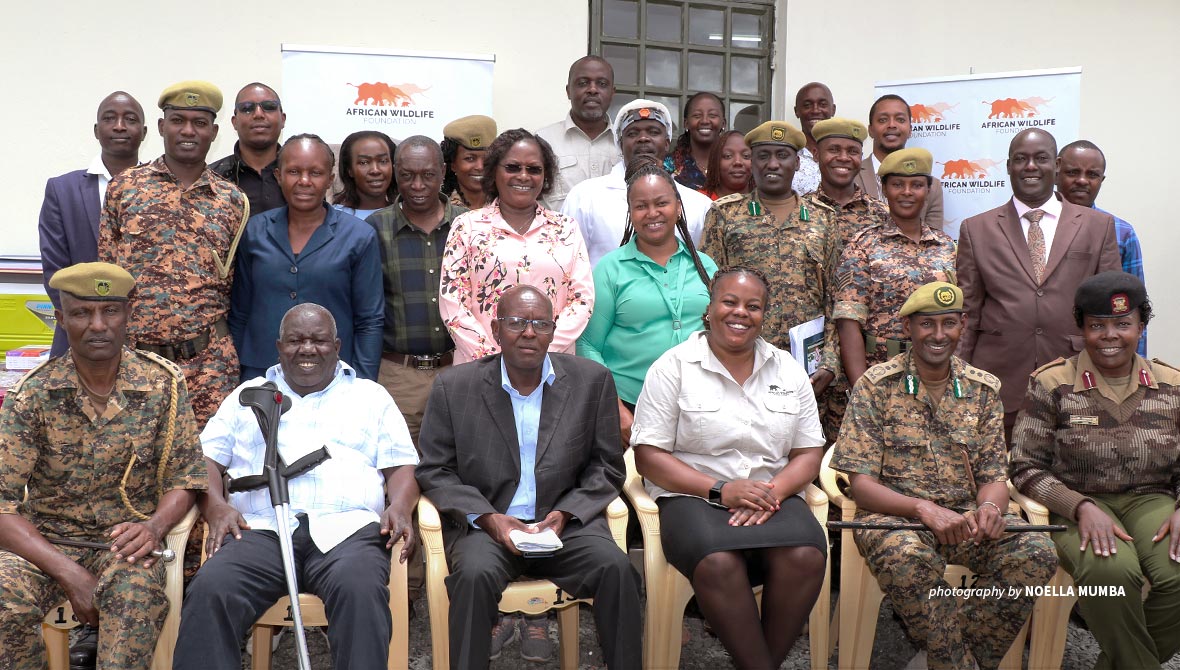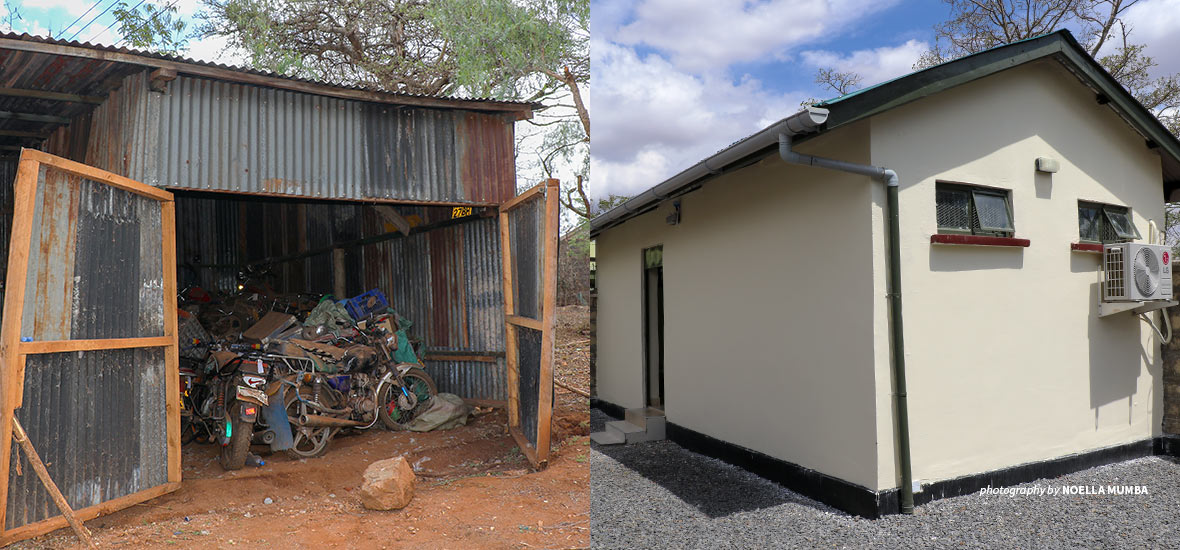AWF Commissions 5 Evidence Rooms to the Kenya Wildlife Service
General Inquiries
Tel:+254 711 063 000
Ngong Road, Karen, P.O. Box 310
00502 Nairobi, Kenya

Before this commissioning, AWF trained 20 officers as evidence custodians at the Kenya Wildlife Service Law Enforcement Academy (KWS LEA)
NAIROBI, KENYA (March 30, 2023) — The African Wildlife Foundation (AWF), through the funding of the US State Department Bureau of International Narcotics and Law Enforcement Affairs (INL) under the Wildlife Trafficking Evidence Security and Destruction in Kenya and Uganda project, commissioned new evidence rooms in five Kenya Wildlife Service (KWS) stations. This was in line with one of the project activities aimed at constructing and equipping new evidence rooms where none exist for KWS.
The process kicked off with a baseline survey of KWS evidence storage facilities carried out in Kenya between September 21, 2020 and September 25, 2020. The outcome of the survey was the prioritization of five areas that needed a storage facility for evidence: Isiolo, Laikipia, Narok, Kajiado, and Tsavo East. The year-long construction of the evidence rooms followed, starting in early 2022 and ending in March 2023.
The KWS evidence rooms were commissioned between March 22-30, 2023. Each event commenced with the inspection of the evidence rooms by the Senior Assistant Director (SAD) of the respective station in the presence of AWF representatives, KWS officials, and contractors. The evidence room is equipped with modern security features and perishable storage solutions that will preserve the integrity of wildlife crime evidence.
“AWF is very proud of this project, and we are pleased to hand over the evidence rooms to KWS. Africa’s wildlife and wildlands face continuous threats from wildlife crimes. At AWF, we are committed to working with KWS to curb this vice. The construction and equipping of evidence rooms is an example of our joint commitment to combating wildlife trafficking in Kenya. These facilities will aid in storing different types of evidence collected during investigations of wildlife crimes and maintaining a proper chain of custody, thus ensuring perpetrators are brought to justice,” said Didi Wamukoya, Director of AWF’s Counter Wildlife Trafficking Program.

AWF helped construct new evidence storage facilities (right) to replace previous structures (left)
The five evidence rooms have been strategically located in areas where wildlife crime is prevalent. They will not only serve as storage facilities for evidence but also as bases for investigators to conduct their work. Additionally, the evidence storage facility shall help build the capacity of KWS in evidence collection, preservation, and management. They will enable KWS to build strong cases against wildlife criminals, leading to successful prosecutions and deterrence of future crimes.
Joseph Sarara, SAD, Eastern Conservation Area, noted that Kenya’s Wildlife Conservation and Management Act (2013) also gave KWS powers to investigate wildlife cases, moving from the earlier practice where the wildlife authority relied on police investigators. This came with the challenge of ensuring proper storage and maintaining the chain of custody of all exhibits until the prosecution and conclusion of each case. With time, exhibit storage became challenging in most stations as they lacked designated secure places.
“We are grateful to AWF and Space for Giants for their support in the construction of the evidence rooms. We are also grateful to INL for funding this activity. Evidence rooms are vital to KWS’s law enforcement activities as they ensure proper handling, storage, and preservation of evidence. The physical evidence rooms are important to ensure standardization of storage and accountability with respect to each item of evidence in our custody,” underscored Abdi Doti, Commandant, KWS LEA, as he officially commissioned the Tsavo East evidence room.
The commissioning of the five evidence rooms is part of AWF’s larger effort to protect African wildlife and support local communities that benefit from the conservation. AWF continues collaborating with governments and partner organizations to build a future in Africa where people and wildlife thrive.
About African Wildlife Foundation
The African Wildlife Foundation is the primary advocate for the protection of wildlife and their habitats as an essential part of a modern and prosperous Africa. Founded in 1961 during the African independence movement in order to build our capacity to steward our natural resources, AWF articulates a uniquely African vision, bridging science, education, public policy, and field programs to demonstrate the benefits of conservation and build a future for Africa where people and wildlife thrive.
MEDIA CONTACTS: For more information or to arrange interviews, contact Wambui Odhiambo of AWF in Nairobi, Kenya at wodhiambo@awf.org